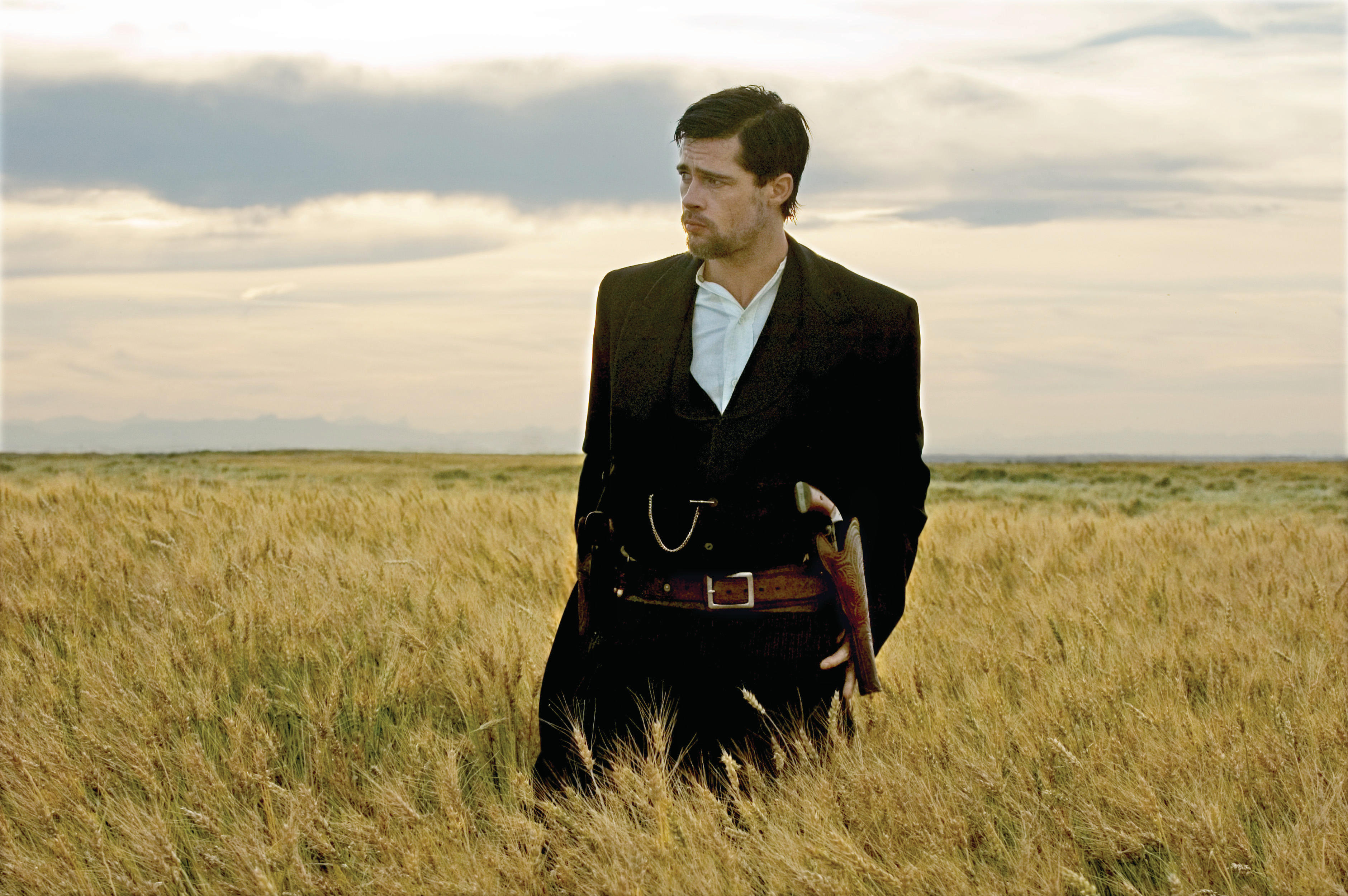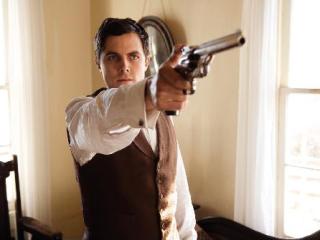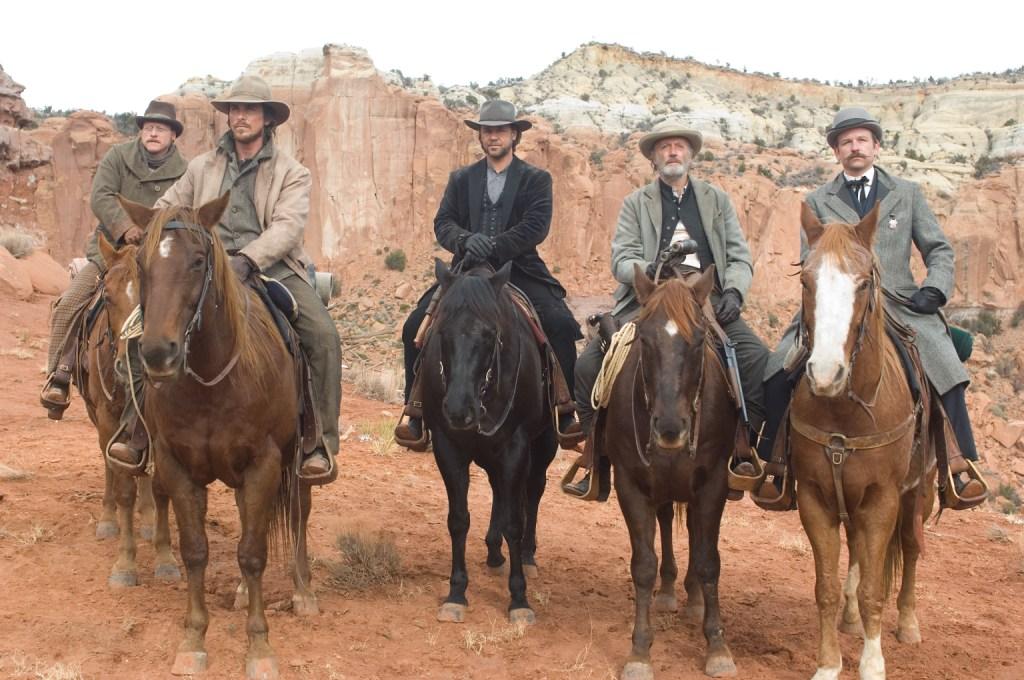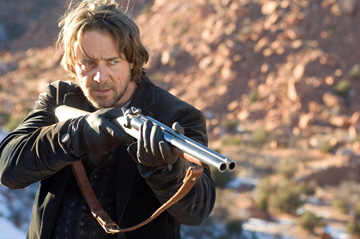“As political scientist Jacob Hacker has argued, the basic obstacle was nothing less than the government’s failure to have adopted a comprehensive health insurance plan decades earlier. As a result, the system that emerged by 1994 entailed such a crazy quilt of private interests — corporations, small firms, insurers, doctors, unions, HMOs, and so on — that moving all Americans into a new framework without worsening anyone’s situation had become virtually impossible.” Slate and Rutger University’s David Greenberg summarizes the history of health care reform, and of the epithet “socialized medicine.” “[T]he idea of government-run health care dates to the Progressive Era. Originally called ‘compulsory health insurance,’ it enjoyed favor in the 1910s among many quarters, including the American Medical Association…But as the debate heated up, doctors began to worry that it would hurt their incomes, and they banded with business groups like the National Association of Manufacturers to oppose reform. American entry into World War I tabled consideration of the issue, and the postwar Red Scare, Starr notes, ‘buried it in an avalanche of anticommunist rhetoric.’“
Category: History
The Loneliness of the Long-Distance Runner.
“For those who attempt it, the doctoral dissertation can loom on the horizon like Everest, gleaming invitingly as a challenge but often turning into a masochistic exercise once the ascent is begun. The average student takes 8.2 years to get a Ph.D.; in education, that figure surpasses 13 years. Fifty percent of students drop out along the way, with dissertations the major stumbling block. At commencement, the typical doctoral holder is 33, an age when peers are well along in their professions, and 12 percent of graduates are saddled with more than $50,000 in debt.”
By way of Little Bit Left, a new site by a Columbia colleague that’s well worth adding to the blogroll, the NYT surveys the sad plight of the modern ABD. (I’ll be 33 at my current expected finish date, seven years after starting, and my cohort’s attrition rate has been significant, so it seems the stats bear out in my case.) “Those who insist on dissertations are aware that they must reduce the loneliness that defeats so many scholars…’It’s easy, especially in our field, to feel isolated, and that tends to slow people down…There’s no sense of belonging to an academic community.‘” Oh, I dunno…Berk and I often have very scintillating conversations…progressive citizenship, New Era consumerism, socks, squirrels, you name it.
The SAT of Yore.
“Who was Alexander Hamilton — Alexander Humboldt — Alexander Pope?…Mention any work by Chaucer — Thackeray — Tennyson — Washington Irving — Whittier.” Could you have been a top-tier engineer in the Gilded Age? Try your hand at the MIT entrance exam of 1869-1870, a test in four parts. (Via Cliopatria.)
Little Rock…and what happened after.
 Fifty years ago, high above Earth, Sputnik signalled a new era for mankind. But on the ground in Little Rock, Arkansas, where nine black students were jeered mercilessly, the prospects for Humanity didn’t seem as sanguine. By way of Do You Feel Loved and to commemorate the fiftieth anniversary of the desegregation of Litle Rock Central High, Vanity Fair‘s David Margolick tells the sad but illuminating story of Elizabeth Eckford (of the Little Rock 9) and Hazel Bryan (her tormentor in the pic at right.) “[T]he picture belongs to Elizabeth and Hazel, and for them it set off a drama that has never really ended. Bound together in fame and misfortune, they have tried, separately and together, to escape the frame. After a brief and well-photographed pseudo-reconciliation 10 years ago, the two are once more incommunicado, living only a few miles, and a cultural chasm, apart.“
Fifty years ago, high above Earth, Sputnik signalled a new era for mankind. But on the ground in Little Rock, Arkansas, where nine black students were jeered mercilessly, the prospects for Humanity didn’t seem as sanguine. By way of Do You Feel Loved and to commemorate the fiftieth anniversary of the desegregation of Litle Rock Central High, Vanity Fair‘s David Margolick tells the sad but illuminating story of Elizabeth Eckford (of the Little Rock 9) and Hazel Bryan (her tormentor in the pic at right.) “[T]he picture belongs to Elizabeth and Hazel, and for them it set off a drama that has never really ended. Bound together in fame and misfortune, they have tried, separately and together, to escape the frame. After a brief and well-photographed pseudo-reconciliation 10 years ago, the two are once more incommunicado, living only a few miles, and a cultural chasm, apart.“
Ford’s Theatre.

On a Saturday in late September, the gray hours were marked by occasional rains, and Kevin, having completed his affairs of commerce the evening prior and having no social prospects on the calendar, traveled to the theater on 68th St. to bask for a day in the fulgor of the cinematograph. And so it was that, three films into his personal odyssey, he came upon Andrew Dominik’s The Assassination of Jesse James By the Coward Robert Ford, a recount of the last days of one of the Old West’s most famous killers, and an analysis of the man who laid him low. Kevin found it to be an overly protracted and ultimately uneven work, to be sure. But he also found the movie often striking and occasionally beautiful, and — even if its reach exceeded its grasp — he admired the film for its ambition, and its confidence in taking extended, leisurely digressions. Kevin applauded Dominik’s attempt to pay homage to the films of Terrence Malick and to the sprawling psychological westerns of the 1970s. That being said, he found the interminable voiceover by Basil Exposition — which often needlessly described the action Kevin could witness for himself on the screen — more than a little irritating…
Thanks, Basil, I’ll take it from here. As Assassination begins, the James gang — or, more to the point, the gaggle of local toughs Frank (Sam Shepard) and Jesse (Brad Pitt) James have assembled for one last train heist in Blue Cut, Missouri — are waiting out the day in the woods. During this stopover, the weaselly wannabe Robert Ford (Casey Affleck), nursing a lean and hungry look, tries desperately to ingratiate himself with the celebrity brothers in turn. (If we couldn’t figure out from the title what part Ford will play in all this, he seems like trouble right from the get-go: one part Mark David Chapman (“I can’t shoot him like this. I wanted to get the autograph.“), one part Sirhan Sirhan (“I have achieved in one day what it took Robert Kennedy all his life to do.”)) And yet, through sheer dogged obsequiousness, Ford eventually manages to fall in with younger brother Jesse, who seems both amused by his blatant hero-worship and nonchalant about the quality of his riding partners. So, for the next two hours plus, we follow the twists and turns of Jesse and Robert’s doomed relationship, particularly as it becomes strained by James’ increasing (and justifiable) paranoia and Ford’s own delusions of easy immortality. And, as we eventually get to that fateful day when the shot is fired (and the years beyond), Ford slowly comes to discover that it’s one thing to kill a man. It’s another to live with yourself afterward.
Assassination definitely isn’t going to be everyone’s cup of tea, and, to be honest, it’s really not at the level that its pretensions seem to warrant: The film never achieves the psychological depths it purports to plumb — Ford in particular seems a pretty straightforward nutjob — and it runs for several beats too long. (The movie should already have ended two or three times over by the time Zooey Deschanel shows up.) And, then, of course, there’s that awful narration, which comes across as screenwriting on autopilot and nine times out of ten feels jarring and unnecessary. (I assume the passages come from the book by Ron Hansen, but they don’t work here at all. They either repeat — or worse, contradict — what we’re seeing. For example, the voiceover tells us in the first ten minutes that Jesse James was a constant blinker, after which Brad Pitt stares at things with an unfaltering, steely blue gaze for three hours.)
That being said, with some wonderful cinematography by Roger Deakins (who also shot In the Valley of Elah) and a solid, colorful cast, Assassination does have its moments. It’s always grand to see Sam Rockwell, and he’s quite commendable here as Bob’s older brother Charlie. (And, while he at first appears to be a mere buffoon, there’s more to him as the movie goes along.) Deadwood‘s Garret Dillahunt also adds another finely-honed cowboy to his western repertory here: His Ed Miller, an outlaw sadly operating a few cards short of a full deck, is a far cry from both Jack McCall and Frances Wolcott, but memorable nonetheless. And there’s plenty of other good work here, including outlaw turns by Jeremy Renner (of 28 Weeks Later), Paul Schneider (looking like the lost Fiennes brother), and, of course, Affleck and Pitt, both of whom bring their A-games to the table (even if Pitt’s motivations in his final moments escaped me.) Also, I’m forced to admit, I was rather tickled by the mean old cuss they acquired to play the Governor of Missouri…

She Ain’t Like Ike.
“Bush has long taken solace in the example of Harry S. Truman, whose foreign policy was deeply unpopular in his time but is now recalled as far-sighted and sage. Now Bush is stretching the comparison still further beyond the historical pale.” After (Dem strategist?) Dubya hints that a forthcoming Clinton presidency will play Ike to his Truman, Slate‘s Fred Kaplan cries foul. If the next prez channels Eisenhower, Kaplan contends, “it would be not as a continuation of Bush’s Truman but rather as a reversal of Bush’s Dulles.“
This is Radio Sputnik.
“It was the sound of wonder and foreboding. Nothing would ever be quite the same again — in geopolitics, in science and technology, in everyday life and the capacity of the human species.” On the eve of its fiftieth anniversary (Oct. 4), the NYT remembers the Sputnik launch. “It was an unprepossessing agent of alarm. A simple sphere weighing just 184 pounds and not quite two feet wide, it had a highly polished surface of aluminum, the better to reflect sunlight and be visible from Earth…The Russians clearly intended Sputnik as a ringing statement of their technological prowess and its military implications. But even they, it seems, had not foreseen the frenzied response their success provoked.”
Wife of Abraham.
Liam Neeson has his Mary Todd: Sally Field joins Spielberg’s forthcoming Lincoln biopic as Abe’s First Lady.
Slow Train Coming | How the West was Won (and where it got us).

Although the last act strains credulity quite a bit, James Mangold’s moody, memorable 3:10 to Yuma is nonetheless a worthy foray into the unforgiving territory of the Old West. I’ve never been much for oaters, to be honest, but if they keep making ’em like David Milch’s Deadwood and 3:10 (and, hopefully, The Assassination of Jesse James by the Coward Robert Ford in two weeks), I’m all for a full-fledged return of the cowboy pic. Then again, I guess it’d probably have been hard for 3:10 to falter in any event, with talented actors like Christian Bale, Russell Crowe, and others in the respective saddles. Mangold (showing more skill here than he did in Walk the Line) displays an authoritative sense of the genre here, and he doesn’t stint on the fireworks. But, for all the breathtaking “Big Sky Country” vistas and well-executed gunplay on display, the most exciting parts of 3:10 occur in the quiet moments between its two stars, as we watch Crowe (the Black Hat) attempt to wend and worm his way into what remains of (White Hat) Bale’s haunted psyche. With their dark interplay driving 3:10, not even the high suspension of disbelief required by the end, nor an overwrought father-son subplot, manage to derail this train. Come on aboard.
On the outskirts of Bisbee, in the years after the Civil War, an honest life is hard, as attested by the sad fate of one Dan Evans (Bale). Having lost his leg in the service of Abe Lincoln, Evans transplanted his wife (Gretchen Mol, dusty yet luminous) and two sons to the Arizona plains in search of renewal, only to find himself deeply in debt and on the verge of starvation. Dan’s boys, particularly his older son William (Logan Lerman), are humiliated by his failure and seeming weakness…and the rains just ain’t comin’. Meanwhile, the regal, courtly Ben Wade (Crowe), a part-time illustrator and full-time desperado, is living high on the hog, along with his gang of thieves, murderers, and bad, bad men — most notably his adoring #2 Charlie Prince (a.k.a. Ben Foster of Six Feet Under and Freaks & Geeks, strangely eerie and excellent here.) But, after a stagecoach job near Evans’ land, this Jack of Hearts lingers too long back in Bisbee, and is summarily captured by a mishmash of local law enforcement, bounty hunters on the Pinkerton payroll (i.e. a solid Peter Fonda, looking haggard and reminiscent of his dad), and Evans himself, in town to settle a debt one way or another. And, when the local railroad suit (Dallas Roberts) offers a $200 fee that might turn around his struggling fortunes, Evans enlists in the company assembled to take Ben Wade to Yuma Prison, by way of the 3:10 train in Contention. But — and it’s a big but — Wade’s gang is still at large, the forces of Law & Order are amateurish at best (note Firefly‘s Alan Tudyk as a well-meaning veterinarian conscripted into the group) and easily corruptible at worst, and Wade himself is no slouch in the survivability department. By means fair or foul, whether by quoting Scripture with a serpent’s tongue, bashing in a sleeping man’s head with a rock, or tempting Evans (and his son) with all the lucre and pleasurable squalor the ignoble life affords. Ben Wade will do what he must to restore his freedom…
…Or will he? My biggest problem with 3:10 to Yuma, and perhaps it’s also an issue in the Glenn Ford version of 1957 (I haven’t seen it), is that Ben Wade’s motivations grow increasingly confused as the film progresses. Given how easily he subdues certain people at certain times, one begins to wonder what’s keeping Crowe along for this ride, other than a general sense of bemusement about the whole proceedings. By the third act, which devolves into a town-wide shootout at the railroad crossing of Contention, it’s hard to figure exactly why Wade is behaving as he does (or, for that matter, why Evans’ missing leg isn’t a problem as he engages in the cowtown equivalent of Ninja Warrior.) Crowe is given a few lines at various points, and the final shot in the movie, to help explain his reasoning…and I guess it makes a certain amount of sense, from a dramatic perspective. But I’m not sure if I bought it, given all that’s come before.
Still, 3:10 to Yuma is another solid and welcome entrant in the burgeoning ranks of the revisionist western. (Indeed, the film reflects more of the New Western History than it does John Wayne country — For example, there’s a sequence involving evil Luke Wilson overseeing a Chinese railroad camp which is really kinda unnecessary, but I for one just liked seeing a Chinese railroad camp included in the proceedings.) And, as with The Wild Bunch, Unforgiven, and several other superlative entries in the genre, 3:10 frontlines the question of what code should — and actually does — govern a man’s actions when he is unconstrained by larger society.
Indeed, if you’ll permit me a digression, that was the beauty of Deadwood, a classic show still unsullied by Milch’s later, more confused attempt to fashion a Gospel of Surfing: Watching the varied, colorful residents of the town attempt to create a tentative order out of anarchic disorder: What rules must we live by if we are to live together? What should we do when the plague breaks out? How and when should the municipal government gather, who should attend, and what roles should it take on (and, for that matter, should there be canned peaches or cinnamon served at the meetings?) And, for the coup de grace, Milch offered a wry commentary on the iron fist within the velvet glove of the existing Gilded Age social order (and the ugly commercial realities that drove much of westward expansion.) When the fledgling entity of Deadwood finally ran up against the established authorities, it was not the government of these United States it faced, but rather the ruthless and mighty arm of unchecked Capital. By the end of Season 3, everyone — even the wily, formidable, and take-no-prisoners saloon proprietor Al Swearingen — was eventually forced to bow and succumb before the whims of the Great (and Monied) Man, George Hearst. (As Al put it, “Leviathan f**king smiles.”)
3:10 to Yuma doesn’t cover exactly the same ground as Deadwood, of course (and it has much less time to ruminate in any case.) But, at its heart, in the churning psychological tension between Crowe’s Wade and Bale’s Evans — as well as the omnipresent lure and power afforded by the almighty dollar therein — 3:10 ponders similar western verities. In the absence of external fetters, what drives a man to do the right thing, even to the point of ignoring his own self-preservation? In a world of complicated loyalties and compromising shades of grey, where the law is irrevocably bound up with the interests of the railroads and a struggling farmer and a smirking murderer can draw disparate conclusions from the same Bible, what, even, is the “right” thing in the first place? As today, different men come to different answers amid the open country of the Wild West. What probably matters most, 3:10 seems to suggest by the end, is that a man has some answer he’s ready to live — and die — by. As the cowboy troubador Alias once put it, “to live outside the law, you must be honest.” So you’d better do or find something to make your short time in Contention count…’cause no matter how you live your life, that slow train is coming up around the bend, and it ultimately waits for no one.

Blair, Eric (file under Orwell, George).
“This man has advanced Communist views, and several of his Indian friends say that they have often seen him at Communist meetings. He dresses in a bohemian fashion both at his office and in his leisure hours.” Big Brother was watching him: Ralph Luker of Cliopatria points the way to the recently-released UK Security Service files on George Orwell (as well as those on folk music archivist Alan Lomax and others.) “[W]hile his left-wing views attracted the Service’s attention, no action was taken against him. It is clear, however, that he continued to arouse suspicions, particularly with the police, that he might be a Communist. The file reveals that the Service took action to counter these views.”
